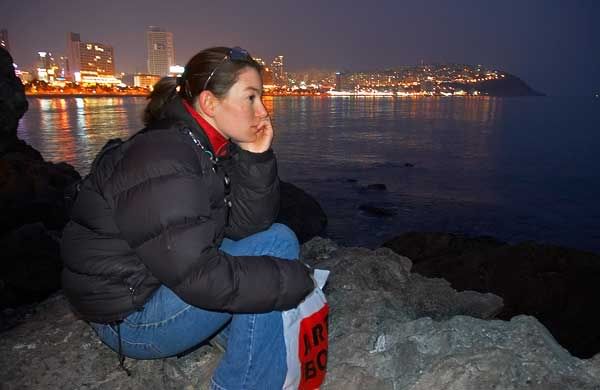Navy Beans
She rummaged through the boxes of donations. She knew she was supposed to be grateful - people were giving in kindness (and sometimes guilt) to help those less fortunate than themselves. But she couldn't help wondering why they'd donate some of this stuff rather than tossing it out. The shoes were almost always worn out, no good to anyone. The pants were often full of holes that either needed to be mended or made into rags. And the food - it was either stuff that was on sale at the grocery store, or those odd cans that turn up at the back of the pantry that no one remembers buying; canned pumpkin, water chestnuts, bags of navy beans.
She was just about to give up for the day when she spotted the envelope mixed in with some old t-shirts. Curious, she opened it. Inside was a small bundle of cash, and a note.
"Dear Shelter Worker," it read. "It isn't much but it's all I can spare. Please accept this small donation, along with my son's belongings. He won't need them anymore, but someone else might. Sincerely, Doris Campbell."
She sat back, feeling a little bit ashamed of herself. Women like Doris would worry about others when they were suffering themselves. It was easy to be bitter and to gripe about things, but much harder to put that aside in order to help others. She should know better. She sat still for a while, staring at the boxes of old clothes, trying to decide when she'd lost her optimism, the idealism that had brought her to this work in the first place. Maybe it was time to take a break for a bit and rethink where she was. She knew the burnout rate was high in shelter work, but she hadn't thought it could happen to her.
She stood up slowly, still clutching the note in her hand, and headed back towards her office, unsure of what to do next.
She was just about to give up for the day when she spotted the envelope mixed in with some old t-shirts. Curious, she opened it. Inside was a small bundle of cash, and a note.
"Dear Shelter Worker," it read. "It isn't much but it's all I can spare. Please accept this small donation, along with my son's belongings. He won't need them anymore, but someone else might. Sincerely, Doris Campbell."
She sat back, feeling a little bit ashamed of herself. Women like Doris would worry about others when they were suffering themselves. It was easy to be bitter and to gripe about things, but much harder to put that aside in order to help others. She should know better. She sat still for a while, staring at the boxes of old clothes, trying to decide when she'd lost her optimism, the idealism that had brought her to this work in the first place. Maybe it was time to take a break for a bit and rethink where she was. She knew the burnout rate was high in shelter work, but she hadn't thought it could happen to her.
She stood up slowly, still clutching the note in her hand, and headed back towards her office, unsure of what to do next.


0 Comments:
Post a Comment
<< Home